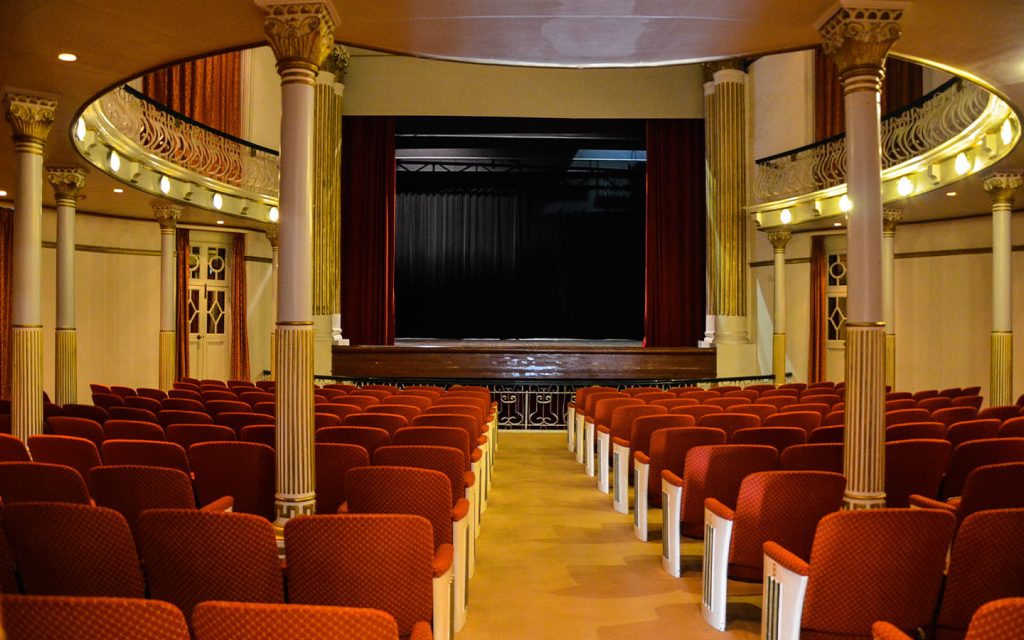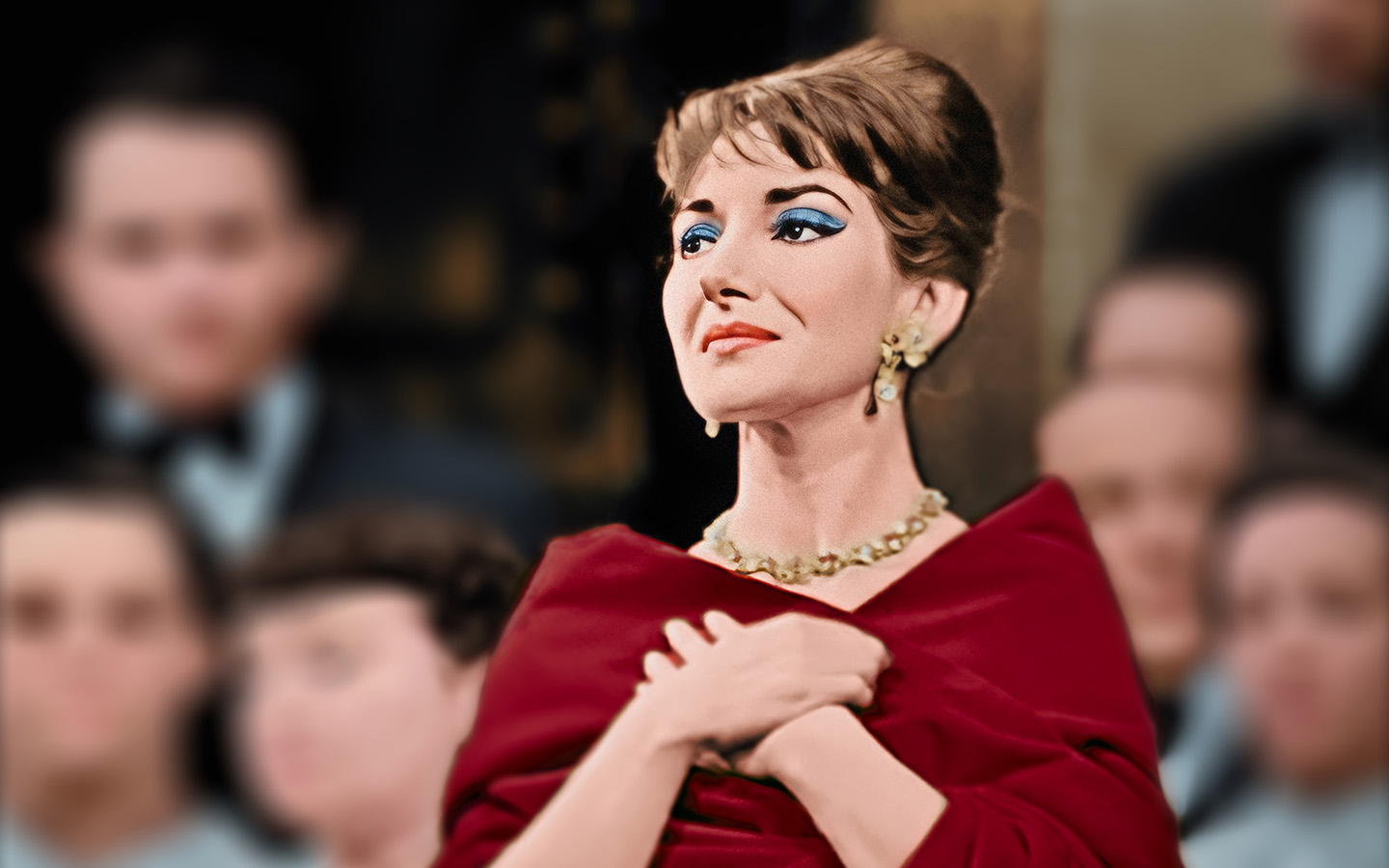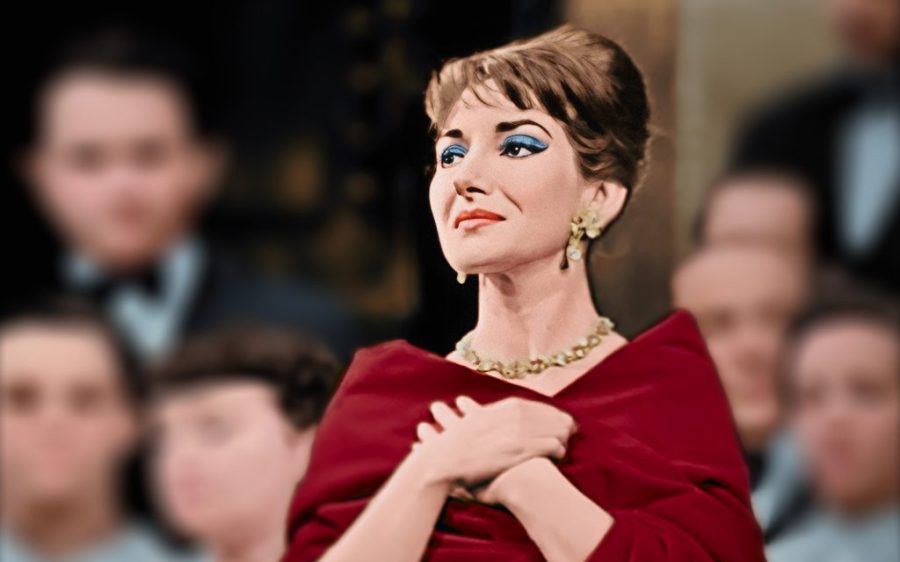For a single night, the entertainment city of Macao brought colour back to a classic European performance.
Last Friday evening, in partnership with Alliance Française de Macao, Alliance Française de Hong Kong and the French May Arts Fest, a special screening of Callas – Paris, 1958, celebrating the centennial anniversary of the famed opera singer Maria Callas, was featured at the cinema theatres of Studio City Macau.
Directed by Tom Volf, Callas – Paris, 1958 digitally restores the singer’s Paris debut in colour from its original 16-millimeter reels. Originally broadcast in black and white, the performance was seen by over 30 million viewers via their televisions, likely unaware that the famed soprano was adorned with a million dollars’ worth of jewellery for the occasion.
Michel Reis, adviser at the Cultural Affairs Bureau of Macao, spoke briefly before the screening. In comments made to Macao News, Reis described Callas’ Paris debut as an inspiration, captivating not just opera lovers but a moment that fostered a new generation of enthusiasts.
[See more: ‘Music is a friend that accompanies you through life.’ Andrea Bocelli talks with Macao News]
The 1958 Paris spectacle was a star-studded one. Among those in attendance were French President René Coty, renowned actor Charlie Chaplin, and model Brigitte Bardot, all part to witness Callas sing the arias “Casta Diva,” from Bellini’s opera Norma, as well as the aria of Rossini’s opera Il Barbieri di Siviglia, “Una voce poco fa.” Callas also took on “Miserere,” the extremely dramatic and musically seductive aria from Verdi’s opera Il Trovatore, Reis noted.
The voice of the American-born, Greek soprano is instantly recognisable, but it was often her life off-stage that garnished tabloid headlines. Just eleven months before the Paris show, the scheduled-to-appear Callas prematurely left a Rome gala which was attended by an audience of over three thousand guests, including Italian President Giovanni Gronchi. Although she cited an illness, her departure played into her diva-like persona and reputation for volatile temperament.
That same year, Callas was fired from the New York Metropolitan Opera due to a feud with management. During an interview with Ed Murrow just weeks after her Paris recital, British conductor Sir Thomas Beecham asked Callas about an incident that involved her allegedly hitting the head of a “misguided director of opera” with a bottle of brandy.
Callas denied the incident, advising anyone not to believe such stories. When Beecham pressed to see if it was a bottle of something else, Callas again refuted the claim.
“It would be a shame for the bottle, you know,” the singer replied.
Opera and Macao

Callas’s 1958 Paris show is often considered the peak of her career. Though she would leave the spotlight by the mid-1960s, making occasional public commitments, Callas quietly lived out the rest of her life in France until she suffered a fatal heart attack in 1977.
Interest in Callas’s life never faded. In addition to countless documentaries, Callas was portrayed by Angelina Jolie in the Pablo Larraín biopic Maria, which premiered at the Venice Film Festival in August of last year, drawing attention to the singer’s final days in Paris.
With Macao looking to build out its entertainment portfolio, a budding market interest for opera is evident, as the Callas screening comes just months after Italian tenor Andrea Bocelli performed to a sold out concert held at the Galaxy Arena back in March.
[See more: How the Christmas spirit at a hospital bedside brought Katy Weatherly home to Macao]
Building on the momentum, Reis sees the Callas – Paris, 1958 screening as a catalyst for future cultural events. He is currently working with an international opera competition in Portugal and collaborating with local promoters across Hong Kong and the Greater Bay Area to bring more musical operas to Macao.
“I hope Macao can take advantage of the only 19th century teatro all’italiana that exists in China, the UNESCO World Heritage listed Dom Pedro V theatre, a perfect venue for chamber musicals which could even house a small opera company” Reis says, seeing music and artists like Maria Callas as a timeless medium that links an audience beyond languages and generations.






